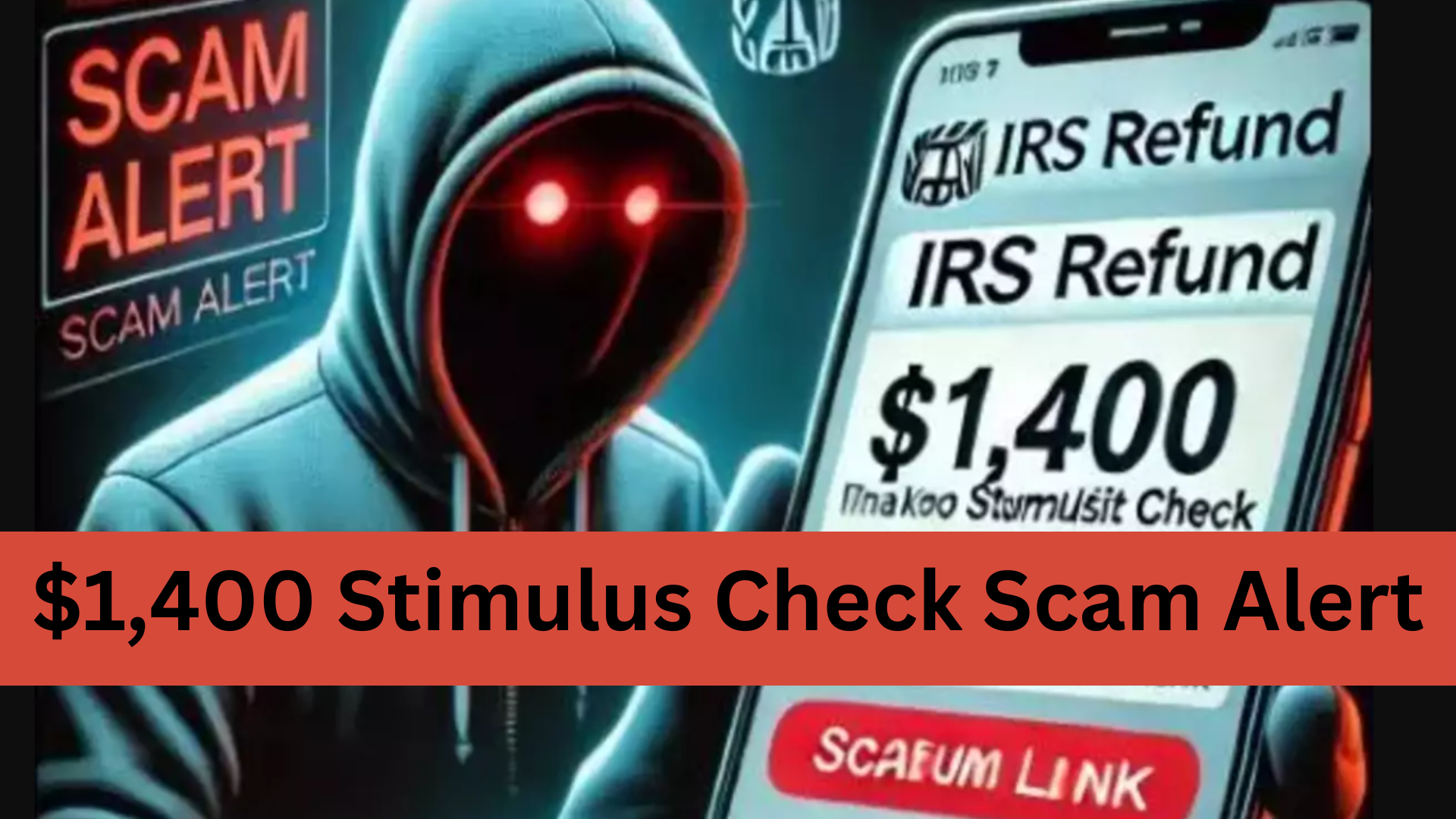In this post, we will provide the essential information on $1,400 Stimulus Check Scam Alert: IRS and BBB Issue Urgent Warning; read and get acquainted with all the details.
$1,400 Stimulus Check Scam Alert
Do not click on any links in a text message that seems to be from the IRS and says you are expecting a $1,400 stimulus check. The government agency does not issue such communications; thus, the text is definitely a hoax.
Scammers are using the announcement of genuine stimulus grants of $1,400 to trick those who aren’t paying attention. Protecting oneself against possible identity theft and financial loss requires being aware of the characteristics of these scams and taking preventative action. In this article, we have covered all the essential details regarding this $1,400 Stimulus Check Scam Alert.
$1,400 Stimulus Check Scam Working
In a text message, what seems to be the IRS informs you that you qualify for a $1,400 Economic Impact Payment and asks for your personal information. It further states that the money will be transferred into your bank account or sent to you by check in one to two business days, once you provide the details.
There is a phony link in the phishing scheme that looks like an authentic IRS website. Malware or a fake form requesting money or personal information might result from clicking on it. The BBB warns against clicking on any unsolicited links because of this, especially if they are related to your stimulus payment.
Scammers take advantage of the fact that many individuals are anxious to get their stimulus checks in order to put pressure on their victims. According to the text messages, as soon as you give personal information, such as your banking information or Social Security number, the check will be deposited. This sense of urgency is a typical strategy used to pressure individuals into making snap judgments that might be dangerous, the BBB says.
IRS and BBB Issue Urgent Warning
A spike in scams that promise taxpayers a $1,400 stimulus check has prompted urgent warnings from the Better Business Bureau (BBB) and the Internal Revenue Service (IRS) in recent weeks. By posing as government organizations, these fraudulent scams seek to obtain financial and personal information.

In order to get personal or financial information, the IRS has made it clear that it does not approach people by text, email, or social media. The IRS sends official letters using postal mail. Additionally, qualified persons get real stimulus funds instantly, without the need for unwanted personal information verification.
The IRS does not use text messaging for communication, the BBB claims. The Stimulus Check 2025 and all other official IRS notices will be sent by mail. In order to fool consumers into clicking on risky links, scammers employ cunning strategies to make their writings appear authentic.
More Details: Get Here
Preventive Measures
To protect against possible frauds:
Make Sure It’s Real: Avoid responding to unwanted texts. To verify the authenticity of any correspondence, get in touch with the IRS immediately via the appropriate channels.
Don’t Click on Links: Don’t click on links or download attachments from unidentified or dubious sources.
Use Official Websites: Instead than using links in unsolicited messages, manually enter official URLs into your browser to get information.
Report Suspicious Activity: To help prevent fraudulent activities, report suspicious activity by forwarding scam SMS to [email protected] and reporting them to the BBB’s Scam Tracker.
Recognizing typical red flags linked to fraudulent communications is crucial for safeguarding against these frauds. Please note that the IRS never contacts taxpayers by social media, email, or text message to request information.
Final Words
Being aware and alert is crucial since frauds that target taxpayers are getting more complex. Through familiarity with the formal protocols of organizations such as the IRS and the ability to spot fake communications, people may safeguard themselves against identity theft and financial loss.
When receiving unwanted messages, always be cautious, confirm the legitimacy of communications via legitimate channels, and notify the proper authorities of any questionable activities. Spend some time checking any allegations pertaining to your stimulus check. Send the message to [email protected] to report it to the IRS if you think it’s a fraud. In order to help others stay safe, you may also alert the BBB.
We are extremely happy that you have visited our portal to read on $1,400 Stimulus Check Scam Alert: IRS and BBB Issue Urgent Warning.
